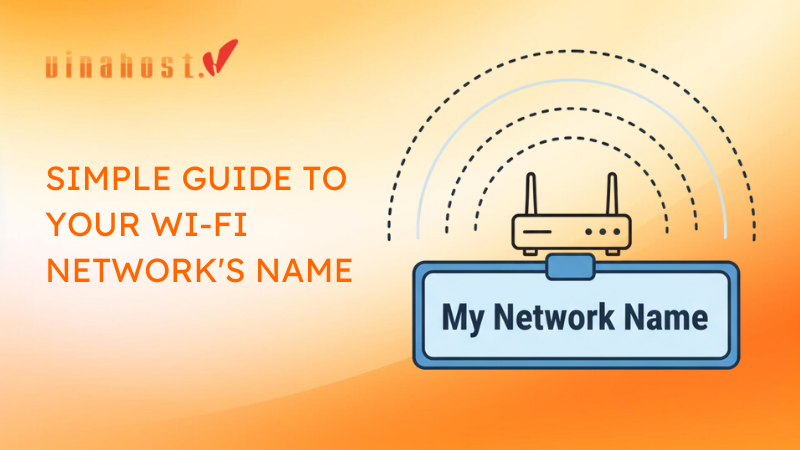In the realm of web hosting, selecting the right type of hosting solution is crucial for the success of your online presence. Among the myriad of options available, Virtual Private Server (VPS) hosting and Shared Hosting are two of the most popular choices. Each offers distinct advantages and caters to different needs, making it essential to understand their differences before making a decision. Dive into VinaHost‘s new article about VPS and Shared Hosting here: “What is the difference between VPS and Shared Hosting?“.
1. What is Shared Hosting?
Shared hosting is one of the most common web hosting service where multi-sites reside on a single physical server. This means that the server’s resources, like processing power and storage space, are all shared among the different websites. It is kind of like renting an apartment in a building with other tenants – you all share the common areas and resources, but you have your own designated space.
Shared hosting is a popular option for beginners or those with smaller websites because it is very affordable. The cost of maintaining the server is spread out among all the users, so it is much cheaper than having your own dedicated server.
However, there are also some drawbacks to shared hosting. Since you are sharing resources, your website’s performance can be impacted if other websites on the server are experiencing high traffic. Additionally, you typically have less control over the server environment with shared hosting compared to other hosting options.
2. Advantages and disadvantages of Shared Hosting

2.1. Advantages
- Cost-effective: Shared hosting is the most affordable web hosting option. By sharing server resources, the costs are distributed among multiple users, making it very budget-friendly for individuals or small businesses starting out.
- Easy to use: Shared hosting providers often cater to beginners. They typically offer user-friendly control panels and pre-installed software, making it easy to set up and manage your website even with no prior technical knowledge.
- Simple maintenance: Shared hosting providers handle most of the server maintenance tasks, freeing you up to focus on your website content and functionality.
- Scalability (to an extent): Some shared hosting providers offer upgrade plans that allow you to increase resources like storage space or bandwidth as your website grows. This can be a good option if you anticipate moderate traffic growth.
2.2. Disadvantages
- Limited resources: Since multiple websites share the server’s resources (processing power, storage space, bandwidth), each website has limitations. This can be problematic for websites with high traffic or demanding applications.
- Performance issues: If one website on the server experiences a traffic spike, it can slow down other websites sharing the server’s resources. This can negatively impact user experience for your visitors.
- Security concerns: While shared hosting providers take security measures, there’s always a slightly higher risk of security breaches compared to dedicated hosting options, as vulnerabilities in one website could potentially affect others.
- Less control: With shared hosting, you have less control over the server environment compared to VPS or dedicated hosting. Customization options might be limited.
2.3. Is Shared Hosting Right for You?
Shared hosting is a fantastic starting point for many users due to its affordability and ease of use.
Shared Hosting is ideal for you if:
- Low budget: Shared hosting is the most affordable web hosting option. It is a great choice if you are just starting out and cost is a major concern.
- Beginner-friendly management: Shared hosting is known for its user-friendly interfaces and readily available customer support. This makes it perfect if you have no prior technical experience managing websites.
- Low traffic website: Shared hosting plans are suitable for websites that expect low to moderate traffic volume. This could include personal websites, hobby blogs, or small business websites with limited online presence.
- Basic needs: If you don’t have specific performance requirements or need extensive customization options, shared hosting offers a good balance of features and affordability.
But, if you expect high traffic, prioritize top-tier performance, or have specific security or customization needs, then shared hosting might not provide enough resources to handle peak traffic efficiently. Shared resources can lead to performance fluctuations. If consistent performance is essential for your website (e.x., e-commerce stores), VPS or dedicated hosting might be better options.
Shared hosting also offers less control and customization over the server environment. If you need more extensive customization options for your site, VPS or dedicated server can provides more flexibility.
While shared hosting providers have security measures, dedicated hosting offers the highest level of security and isolation from other websites. This might be important for websites handling sensitive information.
Also Read: Unveiling the Web’s Hidden Foundation: What is Web Hosting?
3. What is VPS Hosting?

This is how it works: A single physical server is divided into multiple virtual servers using virtualization software. Each virtual server, also called a VPS, acts like a dedicated server with its own allocated resources (CPU, RAM, storage). It operates in its own isolated environment, separate from other VPS users on the same dedicated server. This provides more control and security compared to shared hosting.
VPS hosting provides a powerful and secure solution for websites that have outgrown shared hosting but don’t quite require the full resources and cost of a dedicated server.
Also Read: What is VPS? | Unveiling the Power Behind Virtual Private Servers
4. Advantages and disadvantages of VPS Hosting
VPS is a good choice for sites which have outgrown shared web hosting but do not require the full power and expense of a physical server. It offers a good balance of performance, scalability, security, and control for websites experiencing moderate to high traffic.
If you are considering about VPS, take a closer look at the pros below and cons to decide if it is the right fit for your website!
4.1. Advantages
- Enhanced performance: Unlike shared hosting where resources are constantly fluctuating, VPS hosting allocates a guaranteed amount of processing power, memory (RAM), and storage space to your virtual server. This translates to smoother performance and faster loading times for your website, even during traffic spikes.
- Scalability: VPS hosting plans are designed to grow alongside your website. As your traffic or resource demands increase, you can easily upgrade your VPS plan to include more CPU, RAM, or storage. This eliminates the need to migrate to a completely new server down the line.
- Improved security: In a shared hosting environment, a security breach on one website can potentially affect others. With VPS system, each virtual machine runs in its own isolated environment. This minimizes the risk of security threats spreading and offers greater overall protection for your website.
- Greater control: Compared to shared hosting’s limited control, VPS hosting grants you root access to your virtual server. This allows you to install custom software, configure settings, and optimize the server environment to perfectly suit your website’s specific needs.
4.2. Disadvantages
- Increased cost: VPS hosting comes at a higher price point than shared hosting because you’re essentially getting a dedicated set of resources on a physical server. However, it is still significantly more affordable than dedicated hosting.
- Technical knowledge Required: The increased control offered by VPS hosting also translates to a greater degree of technical knowledge required for management. If you are not comfortable with server administration tasks, you might need to consider managed VPS plans (which come with an additional cost) or be prepared to learn the ropes.
- Management responsibilities: Unlike shared hosting where the provider handles most server maintenance, VPS hosting often requires you to take on some administrative tasks, such as software updates or security patching. Managed VPS plans can alleviate this burden, but they come at an extra cost.
| VPS PRICING AT VINAHOST | ||
| VPS SERVER INDONESIA | THAILAND VPS | GERMAN VPS |
4.3. Is VPS Hosting Right for You?

Here’s a quick way to decide if VPS Hosting is right for you:
- You’ve outgrown shared hosting: If your website is experiencing moderate to high traffic and shared hosting limitations are hindering performance, VPS hosting offers a significant upgrade in resources and stability.
- You need more performance: For websites where consistent performance is paramount (e.x., e-commerce stores), VPS hosting guarantees a dedicated set of resources, ensuring your website loads quickly and functions smoothly even during traffic surges.
- Scalability is important for you: VPS hosting plans are designed to scale alongside your website. If you anticipate future growth, easily upgrade your VPS plan to accommodate increased traffic or resource demands without needing to migrate to a new server entirely.
- Security is your top priority: The isolated environment of VPS hosting minimizes the risk of security breaches compared to shared hosting. This is important for websites handling sensitive information.
- You want more control: VPS hosting offers root access, allowing you to customize the server environment to perfectly suit your website’s needs. You can install specific software, configure settings, and optimize performance for your application.
Overall, if you’re experiencing limitations with shared hosting and your website is on a growth trajectory, VPS hosting is a strong contender to consider. However, if you are a complete beginner or on a very tight budget, shared hosting might suffice for now.
Also read: What is Linode VPS? | Everything You Need to Know
5. What is the difference between shared hosting and VPS Hosting?

5.1. Cost
VPS and Shared Hosting – Difference about cost
- Shared Hosting: Most affordable option. Cost is spread among multiple users sharing the server’s resources.
- VPS Hosting: More expensive than shared hosting due to dedicated resources, but still cheaper than dedicated servers.
You can refer to VinaHost Shared Hosting and VPS pricing below:
| Service Pack | WPH-Start | WPH 1 | WPH 2 | WPH 3 | WPH 4 |
|---|---|---|---|---|---|
| Price | 4.25 USD/Month | 7.25 USD/Month | 11.50 USD/Month | 14.75 USD/Month | 20.25 USD/Month |
| Disk Space (NVMe) | 6 GB | 10 GB | 15 GB | 18 GB | 25 GB |
| RAM | 2.5 GB | 4 GB | 7 GB | 9 GB | 12 GB |
| CPU (Platinum) | 2 cores | 2 cores | 3 cores | 6 cores | 8 cores |
| I/O | 250 Mb/s | 250 Mb/s | 300 Mb/s | 300 Mb/s | 300 Mb/s |
| MySQL CPU | 150% | 200% | 200% | 250% | 300% |
| Current Connections | 200 | 200 | 250 | 250 | 300 |
| Domain | 1 | 4 | 6 | 10 | 12 |
| Email Account | 30 | 50 | 75 | 100 | 150 |
| Minimum payment | 12 months | 12 months | 6 months | 6 months | 3 months |
| Backup | 4 times/day, keep for 1 week | 4 times/day, keep for 1 week | 4 times/day, keep for 1 week | 4 times/day, keep for 1 week | 4 times/day, keep for 1 week |
| Subdomains | Unlimited | Unlimited | Unlimited | Unlimited | Unlimited |
| Inodes | Unlimited | Unlimited | Unlimited | Unlimited | Unlimited |
| Data Transfer | Unlimited | Unlimited | Unlimited | Unlimited | Unlimited |
| Free SSL | |||||
| Litespeed Webserver | |||||
| WordPress Tools | |||||
| Keyword Tools | |||||
| Landing Page Builder | |||||
| Imunify AV | |||||
| CloudLinux | |||||
| Service Pack | VPS NVME 1 | VPS NVME 2 | VPS NVME 3 | VPS NVME 4 | VPS NVME 5 | VPS NVME 6 |
|---|---|---|---|---|---|---|
| Price | 9.50 USD/Month | 18.00 USD/Month | 24.00 USD/Month | 34.00 USD/Month | 49.00 USD/Month | 67.50 USD/Month |
| vCPU | 1 Core | 2 Core | 3 Core | 4 Core | 4 Core | 8 Core |
| RAM | 1GB | 2GB | 3GB | 6GB | 8GB | 8GB |
| NVMe | 20GB | 50GB | 60GB | 80GB | 100GB | 100GB |
| Minimum Payment | 3 Months | 1 Month | 1 Month | 1 Month | 1 Month | 1 Month |
| Virtualization Technology | KVM | KVM | KVM | KVM | KVM | KVM |
| Data Transfer | Unlimited | Unlimited | Unlimited | Unlimited | Unlimited | Unlimited |
| Weekly Backup | Free | Free | Free | Free | Free | Free |
| DirectAdmin | Free | Free | Free | Free | Free | Free |
| SSL | Free | Free | Free | Free | Free | Free |
| Automatic Activation | ||||||
| Virtualizor | ||||||
Cheap VPS VietNam SSD | Free SSL + IPv6 | Just 5$
5.2. Ease of Use
VPS and Shared Hosting – Difference about use
- Shared Hosting: Easier to use. Often comes with user-friendly interfaces and pre-installed software. Ideal for beginners.
- VPS Hosting: Requires more technical knowledge for managing the server environment. Root access allows for customization, but can be daunting for non-technical users.
5.3. Control and Customization
VPS and Shared Hosting – Difference about Control and Customization
- Shared Hosting: Limited control. You can’t significantly customize the server environment.
- VPS Hosting: Offers more control. Root access allows customization of software, settings, and configurations to better suit your website’s needs.
5.4. Performance
VPS and Shared Hosting – Difference about Performance
- Shared Hosting: Performance can be unpredictable. Resources are shared, so traffic spikes on other websites can slow yours down.
- VPS Hosting: More consistent performance. Guaranteed resources ensure your website has the power it needs to function smoothly, even during traffic surges.
5.5. Security
VPS and Shared Hosting – Difference about Security
- Shared Hosting: Lower security compared to VPS hosting. A security vulnerability on one website could potentially affect others sharing the server.
- VPS Hosting: More secure. Each VPS operates in its own isolated environment, minimizing the risk of security threats spreading to other websites.
5.6. Scalability
VPS and Shared Hosting – Difference about Scalability
- Shared Hosting: Limited scalability. Upgrading plans might involve migrating your website to a different server.
- VPS Hosting: Easier to scale. You can typically upgrade your VPS plan to increase resources (CPU, RAM, storage) as your website grows, without needing a full server migration.
6. How to choose Between VPS and Shared Hosting

Besides, if you anticipate future growth, VPS hosting allows for easier scaling by upgrading your plan to accommodate increased traffic or resource demands.
You need to remember that shared hosting upgrades might involve migrating your website to a different server. VPS hosting also requires more technical knowledge to manage the server environment effectively.
If you are not comfortable with server administration tasks, shared hosting might be a better option, or consider managed VPS plans (which come at an additional cost).
Also read: What is Linux VPS? | Choosing the Right Linux VPS Provider
7. FAQs
7.1. Is shared hosting secure enough for my website?
Shared hosting is the most affordable option, and the security measures are included in the hosting plan. It providers typically implement security measures like firewalls, malware scanning, and server updates to protect all websites on the server. This can be beneficial for users who might not have the technical expertise to implement these measures themselves.
Therefore, shared hosting can be a secure option for basic websites like: low-traffic websites, personal websites, hobby blogs, or small business websites with a basic online presence and no sensitive information being collected.
Howerver, you have minimal control over the server environment in shared hosting. This means you can’t implement additional security measures that might be specific to your website’s needs. Security vulnerabilities in one website on the server could potentially affect others sharing the same resources.
If security is a major concern for your website, or you handle sensitive information, consider a hosting option like VPS hosting or dedicated server, which offer greater security and control.
7.2. Can I upgrade from shared hosting to VPS later?

This is usually a straightforward process, and many web hosting providers offer both shared and VPS hosting plans, making it convenient to switch within the same provider.
Most providers have a clear upgrade path from shared hosting to VPS. They can guide you through the process and recommend suitable VPS plans based on your website’s requirements.
It is important to you to create a full backup of your website files and databases before initiating the upgrade. This ensures you have a copy of your website in case of any unforeseen issues during the migration process.
Once the migration is complete, you’ll need to update your domain name system (DNS) records to point to your new VPS server. This ensures visitors accessing your website domain are directed to the correct server.
7.3. What if I need something more powerful than a VPS?
If you’ve outgrown the capabilities of VPS hosting and need even more power and control, then dedicated hosting is the next step up.
Unlike shared hosting or VPS hosting with limitations, a dedicated server grants you full control over the server environment. You can install any software you need, configure settings to perfectly optimize performance for your website, and manage the server exactly as required.
Besides, since you have the entire server’s resources (CPU, RAM, storage) at your disposal, your website can experience the best possible performance. This translates to faster loading times, smoother operation, and the ability to handle high traffic volumes without slowdowns.

Here’s a comparison of VPS and Shared Hosting :
| Feature | Dedicated Server | VPS Hosting |
| Resources | Entire physical server for your exclusive use | Dedicated set of resources on a shared physical server |
| Performance | Highest level of performance and stability | Consistent performance, but can be impacted by other VPS users |
| Security | Most secure environment with full control over security | More isolated than shared hosting, but not as secure as dedicated servers |
| Control | Complete control over hardware and software | Root access allowing for customization to a certain extent |
| Cost | Most expensive hosting option | More expensive than shared hosting, but less than dedicated servers |
Dedicated Server VietNam | Free IPv6 + SSL |Just 125$
Dedicated servers are ideal for websites or applications that require the following:
- Extremely high traffic: Websites experiencing millions of visitors per month that need top-notch performance to function smoothly.
- Mission-critical operations: Websites or applications that cannot afford downtime or performance issues, such as online banking platforms or e-commerce stores with high transaction volumes.
- Strict security requirements: Websites handling highly sensitive data, like healthcare providers or government institutions, where the utmost security is paramount.
However, the increased cost and technical expertise required for management make it important to carefully assess your needs before choosing this path.
Also read: What is the difference between VPS and Dedicated Server

VPS hosting offers more control and flexibility than shared hosting, but it does require some technical knowledge to manage effectively. Many VPS providers also offer user-friendly control panels that simplify tasks like software installation and server configuration.
Therefore, if you have experience with server administration or are comfortable learning new things, managing a VPS might not be too difficult.
Technical skills needed and tasks involved VPS management:
- Basic understanding of server administration: This includes familiarity with concepts like CPU, RAM, storage, and software installation.
- Knowledge of your operating system: VPS hosting typically comes with Linux-based operating systems like Ubuntu or CentOS. If you’re comfortable with Windows, you might need to learn some basic Linux commands.
- Server monitoring: Keeping an eye on resource usage (CPU, RAM, storage) to ensure smooth operation and identify potential bottlenecks.
- Software updates: Regularly updating the operating system, applications, and security software to maintain optimal performance and address vulnerabilities.
- Security hardening: Implementing security measures like firewalls and keeping software up-to-date to minimize security risks.
- Basic troubleshooting: Identifying and resolving common server issues like slow loading times or error messages.
If your technical expertise is limited, you value your time, or security is a top priority for your website, then a managed VPS plan is a better choice.
It allows you to reap the benefits of a VPS environment (better performance, security, and control) without the burden of server management tasks.
With a managed VPS plan, you can hand over the server management burden to the experts. This frees you up to focus on running your business and growing your website.
Managed VPS providers often have experienced security teams who can proactively monitor your server for threats and implement best practices to minimize security risks.
8. Conclusion
Choosing the right hosting solution is a critical decision that can significantly impact the performance, scalability, and security of your website. Through our exploration of VPS and Shared Hosting, it is clear that both options come with distinct advantages and are suited to different types of users and website needs.
By understanding the differences between shared Hosting and VPS, we hope you can make an informed decision that aligns with your website’s goals and ensures a stable, scalable, and secure online presence!
Find out more articles at our Blog and don’t hesitate to contact us for support:
- Email: support@vinahost.vn
- Hotline: 1900 6046
- Livechat: https://livechat.vinahost.vn/chat.php
>>> Read more:
What is Cambodia VPS Hosting? | Everything you need to know
What is MMO VPS? | Everything You Need to Know


 Tiếng Việt
Tiếng Việt English
English 简体中文
简体中文






























































































